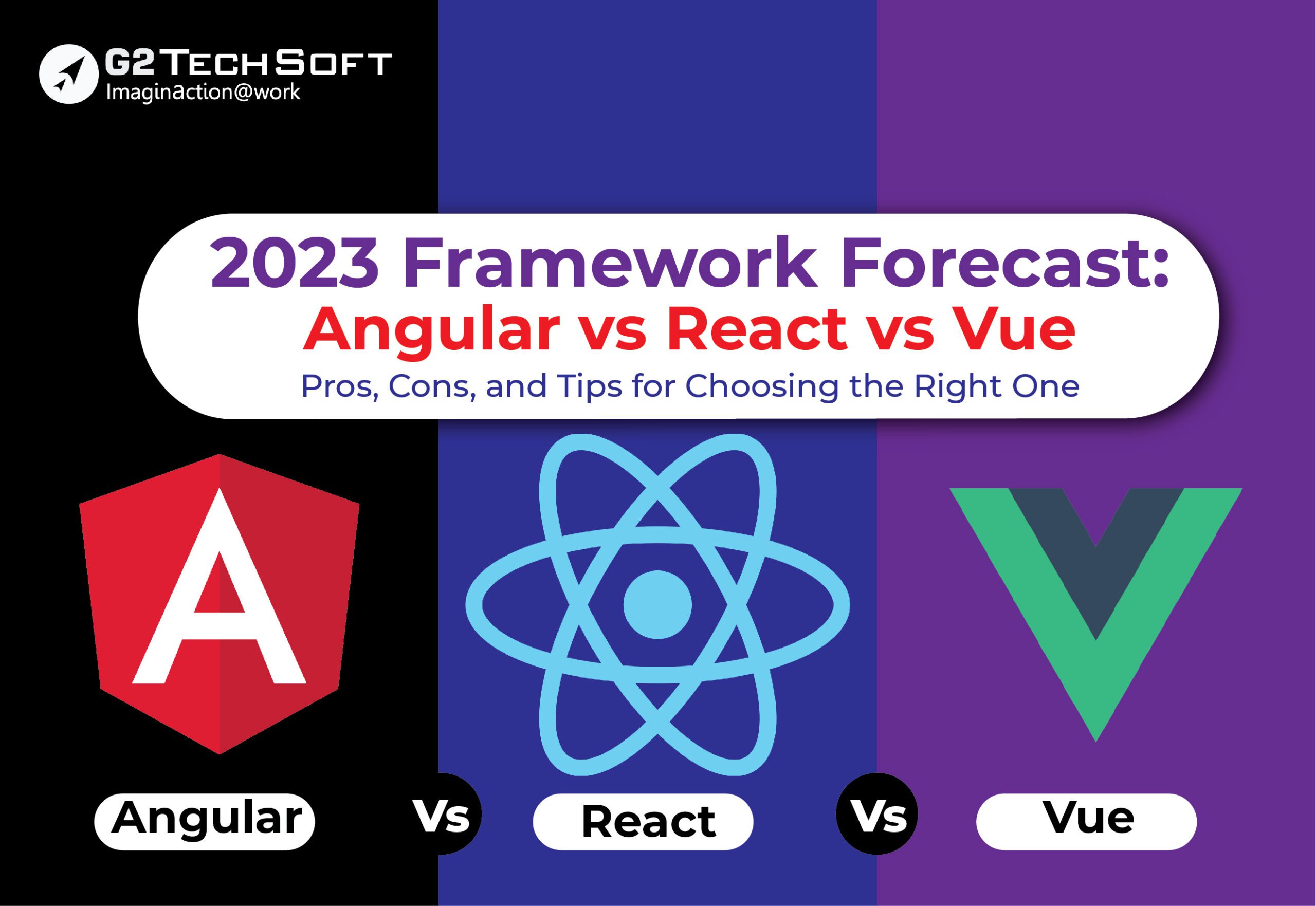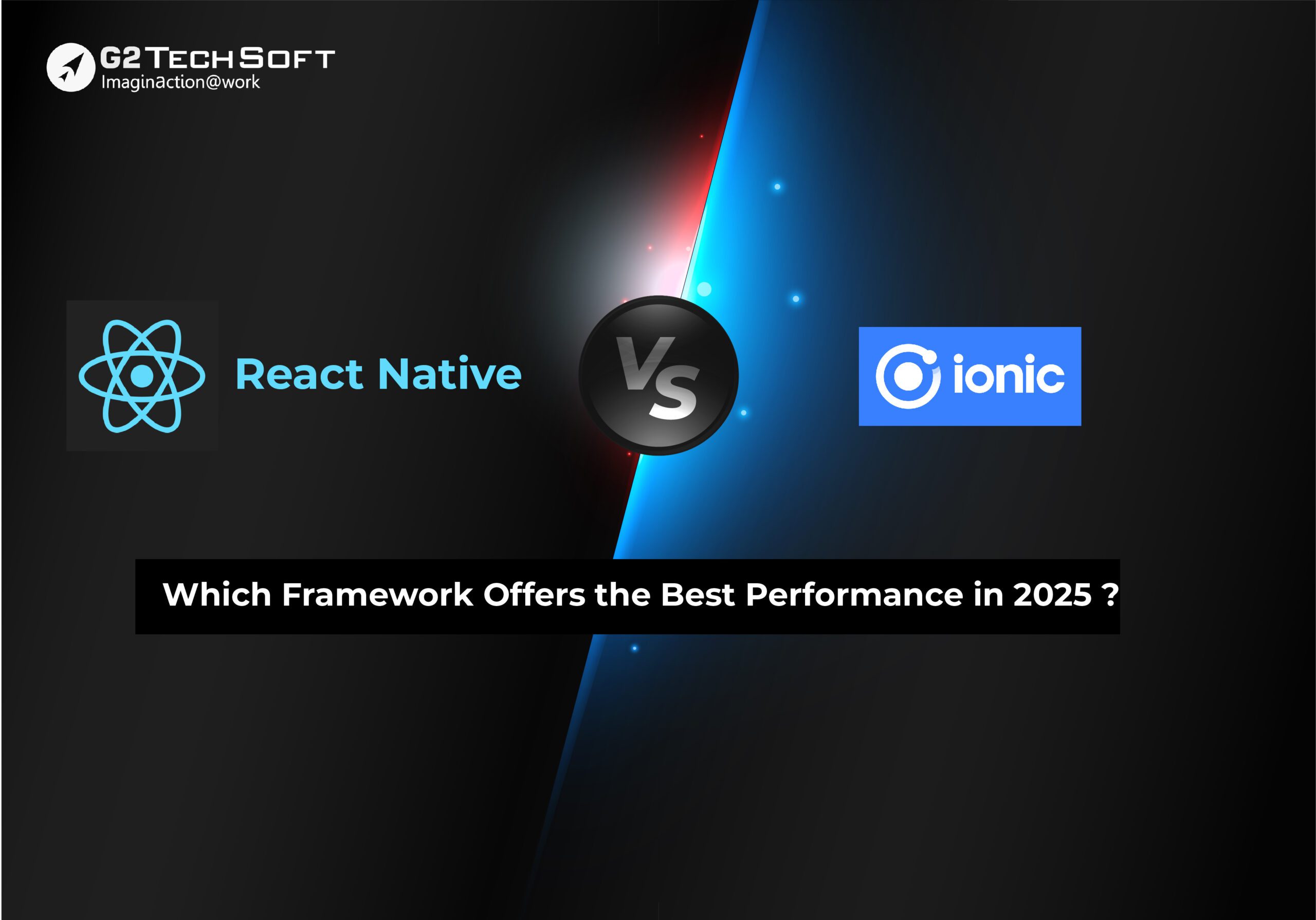
When comparing Angular, React, and Vue, there are a few key differences to keep in mind. Angular is a full-fledged framework that offers a wide range of features, including two-way data binding, a large library of pre-built components, and a comprehensive set of tools for testing and debugging. React, on the other hand, is a library that focuses primarily on the view layer of an application and is designed to be fast and efficient, with a virtual DOM that allows for smooth updates. Vue is a progressive framework that is simple and easy to use, with a reactive data model that makes it easy to integrate into other projects by web and mobile app development services providers.
In terms of complexity among Angular, React, and Vue, the former has a steep learning curve for new developers, as it requires a good understanding of TypeScript and the MVC pattern. React, on the other hand, requires a strong understanding of JavaScript and its functional programming paradigms. Vue, meanwhile, is easy to learn and is a great choice for smaller projects or for developers who are just starting out with front-end development.
Vue, React, And Angular: Which One to Choose?
Here are the following parameters to compare React, Angular, and Vue— the three formidable frameworks:
Popularity
- Angular framework is a popular framework for building large-scale, complex applications. It is designed to handle data-intensive applications and provides a range of features to support efficient and scalable development.
- React framework is a popular choice for building single-page applications due to its fast updates and efficient virtual DOM. The virtual DOM allows React to update only the components that have changed, leading to smoother and faster updates compared to traditional DOM updates.
- Vue framework is well-liked for its simplicity and ease of use, making it a popular choice for smaller projects and for developers who are just starting out. Its small size and simple structure make it easy to learn and quick to integrate into projects.
Job Opportunities
- Angular framework: Angular is in high demand for its ability to handle large amounts of data in enterprise-level applications. Its modular architecture and two-way data binding make it a solid choice for building data-intensive applications that require scalability and efficient data management.
- React framework: React is highly sought after for its fast and efficient updates in single-page applications. The virtual DOM allows React to update only the components that have changed, leading to smoother and faster updates compared to traditional DOM updates.
- Vue framework: It is increasingly in demand due to its simplicity and ease of use. Its small size and simple structure make it easy to learn and quick to integrate into projects. Vue also provides a range of tools and features for building dynamic and interactive user interfaces, making it a versatile choice for both small and large-scale projects.
React, Angular, Vue Performance
- Angular framework: It is a solid choice for handling large amounts of data, but can be slower than React or Vue. This is due to its comprehensive feature set and modular architecture, which can result in slower performance compared to other frameworks. However, the Angular framework’s ability to handle large amounts of data and complex data structures makes it a solid choice for building data-intensive applications that require scalability and efficient data management.
- React framework: React is known for its fast updates and efficient virtual DOM. The virtual DOM allows React to update only the components that have changed, leading to smoother and faster updates compared to traditional DOM updates. This makes React a popular choice for building fast and responsive single-page applications that require real-time updates.
- Vue framework: Vue is fast and simple, but may not handle large amounts of data as efficiently as Angular. Vue’s small size and simple structure make it easy to learn and quick to integrate into projects, but it may not be the best choice for data-intensive applications that require scalability and efficient data management.
Community Support
Angular, React, and Vue is three popular front-end JavaScript frameworks that have their own unique strengths and benefits.
Angular has been around for a while and has a large and supportive community. It means there are plenty of resources and tools available, including a robust set of built-in features, as well as a wide range of third-party libraries and plugins that can be used to enhance development.
React, on the other hand, has a strong and active community that provides a wealth of resources and support. It is a popular choice for building complex user interfaces, and it is well-suited for use with other libraries and frameworks. React’s modular architecture and focus on reusable components make it a popular choice among developers.
Vue framework, the youngest of the three, has a growing community that provides support and resources. Vue is known for its simplicity and ease of use, and it is often compared to React in terms of its capabilities. Vue’s growing popularity is due in part to its straightforward syntax, lightweight nature, and intuitive structure. It also offers a strong set of tools and features that make it a good choice for building complex web applications.
Exploring the 2023 Innovations: What’s New in the Angular, React, and Vue Framework
The web development industry has been rapidly evolving in recent years, and the Angular, React, and Vue frameworks have been at the forefront of these changes. In 2023, these popular frameworks are set to introduce several exciting new innovations that will further enhance their capabilities and make it easier for developers to build high-quality web applications. One of the most notable innovations in Angular’s latest version offers improved performance and increased efficiency. The framework has been optimized to handle complex data structures and large amounts of data, making it an ideal choice for building data-intensive applications. React, on the other hand, has introduced a new set of tools and features that allow developers to create even more engaging and interactive user interfaces.
The Battle of the Frameworks: Angular vs React vs Vue – Who Wins?
The debate between Angular, React, and Vue is ongoing, with each framework having its own strengths and weaknesses. It’s difficult to determine an outright winner, as each framework excels in different areas and serves different purposes. The angular version, with its comprehensive feature set and modular architecture, is a great choice for large-scale, data-intensive applications. It’s known for its two-way data binding, which allows for seamless updates and real-time data synchronization.
React, on the other hand, excels in building fast and efficient single-page applications. Its virtual DOM and ability to create engaging and interactive user interfaces make it a popular choice for applications that require real-time updates. Many top companies using React Native are Facebook, Instagram, Airbnb, Uber Eats, and Walmart for their mobile app development, while creating a web application using React JS is simple as it is a popular library.
Companies using Vue JS like it because of its simplicity and ease of use are well-suited for small medium-sized projects and for developers just starting out. Its fast performance and ease of integration into existing projects make it an attractive choice for those looking for a straightforward solution.
The debate around Angular vs React vs Vue is ongoing, but the best framework for a particular project will depend on its specific needs and requirements. For example, Angular web app development is a popular choice for companies because of its simplicity and capabilities, and it is particularly suitable for large-scale web and mobile application development. React, on the other hand, is well-suited for fast single-page application development, while Vue is often recommended for small to medium sized projects and for those just starting out.
Choosing the right framework for a project is crucial, as it can impact the project’s success and scalability. Factors such as the size of the project, the complexity of the features, the intended platform, and the required level of customization should be taken into account when selecting a framework. Ultimately, the winner of the Angular vs React vs Vue debate will depend on the specific requirements of each project, and developers should carefully evaluate each framework before making a decision.
Looking for a Service Provider?
G2 TechSoft is a reputable company that offers Angular app development, Vue development, and React Native services to businesses of all sizes. We have a team of skilled developers who can create custom web applications that meet the unique needs of each business and we are known for our quality services, timely delivery, and competitive pricing.
Our Angular app development services are designed to help companies create high-performance, scalable, and interactive web applications. We have experience working with a wide range of businesses, from startups to large enterprises, and can deliver custom solutions that meet specific business requirements.




